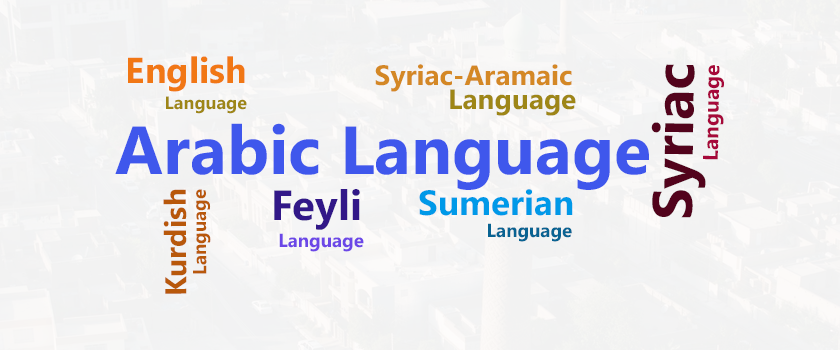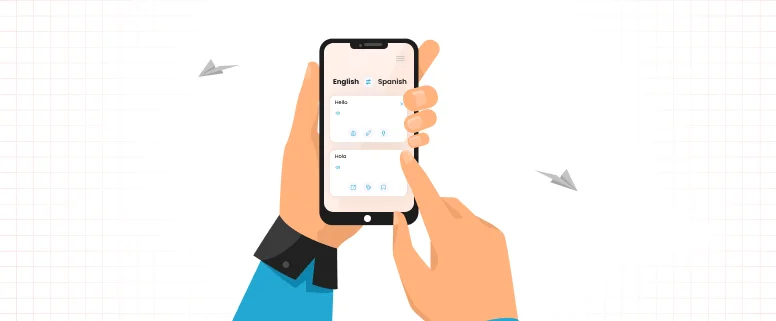Iraq is officially known as the Republic of Iraq. It is located in Western Asia surrounded by Turkey on the Northside, Iran in the East, Saudi Arabia in the South, and Kuwait in the South-Eastern. Moreover, Syria is on the west, and Jordan is on the southwest side. The biggest city and capital of Iraq are Baghdad. It is a very diverse country with many diverse ethnic groups. The ethnic groups that reside in Iraq are Turkmen, Assyrians, Yazidis, Armenians, Kawliya, Yazidis, Shabakis, Circassians, Sabian Mandaeans, Kurds, and Arabs. Approximately, 95-98% of the population are Muslims. Minority groups like Mandaeans, Yezidis, Yarsans, and Christians are also residing in Iraq. Want to know about the language spoken in Iraq? Let’s dive into the history of the country first.
Table of Content
History of Iraq
Years ago, the land which is now called Iraq was called Mesopotamia. Which means the land between rivers. It is a land of muddy plains that is famous for its rich civilization like Assyria, Babylon, Akkad, and Sumer. People also call it the land of Fertile Crescent and later on, it became a hub of politics for the Roman, Greek, and Persian dynasties. It became a central part of the Islamic world after the 7th century.
Baghdad became the capital of the Abbasid caliphate in the 8th century. After World War 1, the modern state of Iraq came into existence from the Ottoman areas of Mosul, Basra, and Baghdad. Its name is rooted in an Arabic term that describes Mesopotamia, north-western Iran, and Persia.
Many historians believe that Iraq is also the birthplace of Assyrian and Babylonian society. This region became part of the growing Ottoman Empire by the 16th century till the time when the British took control in 1918 under the Treaty of Sevres. In 1958, the Hashemite monarchy came to an end while bringing political reforms and legislation changes. After this revolution, the Soviet Union started supplying arms to Iraq.
Culture of Iraq
Iraq is a great place of literature, arts, and culture in the MENA region (Middle East and North Africa). It’s due to the diversity of Mesopotamia countries throughout history. From ancient Mesopotamia till the Western confrontation, Iraq’s culture had a great influence by the changes. The culture of Iraq is a depiction of the world’s oldest history of civilizational, sectarian, religious, ethnic, and linguistic diversity. It has been under the great impact of different civilizations. Because of this tremendous conflict between different civilizations and cultures, the Iraqi culture has created rich treasures of architecture, singing, music, crafts, and more. The World generally identifies Iraqis as Arabs because of their religion Islam whereas Kurds living in Iraq have their own identity. The ethnic groups in Iraq have preserved their own identity by preserving their norms. The rich history and culture have had a great impact on Iraq language
Effects of American Intervention in the Early 2000s
What George Bush proclaimed the war against terrorism is now skeptically thought of to be true. Many believe they only invaded Iraq for personal gains. March 20, 2003 with the help of Australia, England, and Poland, Iraq was bombed and their leader Saddam Hussain was captured and killed. This changed the course of the entire nation. Development and education was halted for over a decade. The effects of that war are still experienced heavily, though with time the world’s perspective on the matter has changed a lot.
Some anti-western sentiments after the war, have led the English language to be spoken less. Completely neglected in some parts of Iraq. Many Iraqi citizens also left for European and North American countries to escape the poor situation. Which led them to learn more languages, today many foreign Iraqi’s visit their home country. This has helped spread more languages and culture in the region. The US troops spent a long time in the country, which also affected culture and language within those regions.
The Official Language in Iraq
The constitution of Iraq has defined the official language of Iraq. The transitional national assembly of Iraq adopted it on September 18, 2005. The constitution further confirmed it by conducting a referendum on October 15, 2005. The official announcement of the constitution came into publication on December 28, 2005, in the Arabic language in the official gazette of Iraq. It further became available in the English language for international use by Iraqi officials and United Nations.
As per Article 4 of the constitution, Arabic and Kurdish are the official language of Iraq whereas the other three languages, Turkmen, Armenian, and Syriac are minority languages. Moreover, any region or province may declare other languages official when the majority of the population approves it in a general referendum.
1. Arabic Language
The Arabic language spoken as an Iraq language and has a special name Mesopotamian Arabic. It is a part of the variety of Arabic that the Mesopotamian part of Iraq speaks along with areas like Syria, south-eastern Turkey, Iran, and multiple communities in Iraq. Mesopotamian Arabic is a part of the Aramaic Syriac dialect. The old Mesopotamian languages of Akkadian and Sumerian had a great influence on this language.
Moreover, other languages spoken in Iraq that influence this language are Greek, Kurdish, Turkish, and Persian. Experts believe that Mesopotamian Arabic is part of most Aramaic-Syriac which came under the influence of Arabic. It originated from Mesopotamian and spread all over the Middle East during the Neo-Assyrian period. Therefore, it became the lingua franca of the whole region before Islam. Assyrians and Iraqi Arabs are large groups of Semitic peoples that share similarities between Syriac and Arabic in Iraq.
2. Kurdish Language
The Kurdish language is a West Iranian language and also an Indo-Iranian language. It is mainly popular in Kurdistan. After Persian and Pashto, it is the third-largest Iraq official language with many dialects. It is native to around 20-40 million people. It has three dialect groups. Northern Kurdish or Kurmanji is widely common in Iraq, Mosul, and Turkey. The writing system of Kurdish uses Latin characters.
The literal work of this language is Sarangi. It is widespread in the region of Orumiyeh, Iran, and the regions that lie in the lower part of traditional Kurdistan in Iraq. Kurdish written format is based on the modified Perso-Arabic script. Pehlewani is another name for southern Kurdish but this dialect has received less attention.
3. Sumerian Language
Ancient Sumer and Mesopotamia, which is modern-day Iraq, both speak this language. It is one of the earliest languages present in written form. The proto-literate period of the Sumerian language spanned from the 35th to 32nd centuries BC. Logographs having phonological content were popular during this time period. Kish tablet is the name for the oldest document of the proto-literate period.
In the 3rd millennium BC, a diverse culture emerged between the Semitic-speaking Akkadians and Sumerians, resulting in bilingualism. Whether it is through loan words or lexical conjunctions, the East Semitic languages Akkadian and Sumerian have influenced one another in many facets of language. Therefore, scholars consider Sumerian and Akkadian as Sprachbund.
4. English Language
Although Arabic and Kurdish are the official languages of Iraq, people living in bigger cities like Erbil, and Sulaymaniyah understand and speak English. If you wish to visit Iraq and don’t know Arabic and Kurdish then don’t worry. Kurdish will try to communicate with you in a language that you understand.
Therefore, if you speak English then Kurdish will communicate with you in English to provide you great hospitality services. English is widely spoken in the main cities of the country whereas you have to struggle in finding an English speaker outside the main cities.
5. Syriac-Aramaic Language
Syriac-Aramaic is one of the local languages that is recognized in Iraq. It is spoken by Syrian Christians that live in the North of Iraq. Moreover, it is a part of Middle Aramaic. The history of this language is dated back to the 1st century AD. It became an essential literary language in the Middle East from the 4th to the 8th centuries. Syriac Christians used it for religious rituals in Churches. Some schools in Iraq also teach this language.
6. Feyli Language
Feyli Kurds also known as Iraqi Lurs that reside in Iraq’s central and Eastern parts are mostly Shia. Their total population is around 1.5 million and most of them live in Baghdad along with Diyala, Missan, Wasit, and Basra governorates. If you visit the autonomous Kurdistan region, you will also find a sizeable population of Feyli Kurds living there. They speak southern dialects of Kurdish such as Sorani Furthermore. The language which Feylis group speaks is the Lurish language. It is the minority language of the country.
7. Syriac Language
Millions of people who are Iraqi-Chaldo-Assyrians, immigrants, and Syriac-speaking people from Mesopotamia speak the Syriac language. Different dialects of Syriac include Chaldean Neo-Aramaic, Assyrian Neo-Aramaic, and Mandaic.
8. Other Languages Spoken in Iraq
The people of Iraq speak several minority languages. Armenian immigrants who settled in Iraq especially in Baghdad in the 19th and 20th centuries speak the Armenian language. Many Turkmen also reside in Iraq. They have maintained their identity and speak the Turkmen language. Many Turkmen live in Baghdad, Erbil, Saladin, and Nineveh. Other ethnic groups like Persians also live in Iraq.
This group was identified when Iraq and Iran Identified their borders. One ethnic group, Zaza-Gourani, lives in the Northern part of Iraq which resulted in the formation of six languages. In the area of Halabja, Khanagin, and Mosul, the largest dialect of Gorani is spoken. The other ethnic language is Domari. It is spoken by Indian nomadic groups that live around Iraq’s biggest cities and towns. Iraqi people also talk to Aramaic tongues.
How Iraq is Preserving Minority Languages?
Iraq is taking many steps to preserve minority languages. For example, to save the Syriac language, it has included this language in the syllabus of 152 public schools. The Christian community of Iraq is taking initiatives to preserve the Christian culture. Furthermore, the Iraqi government is also encouraging its population to learn their native tongue.









